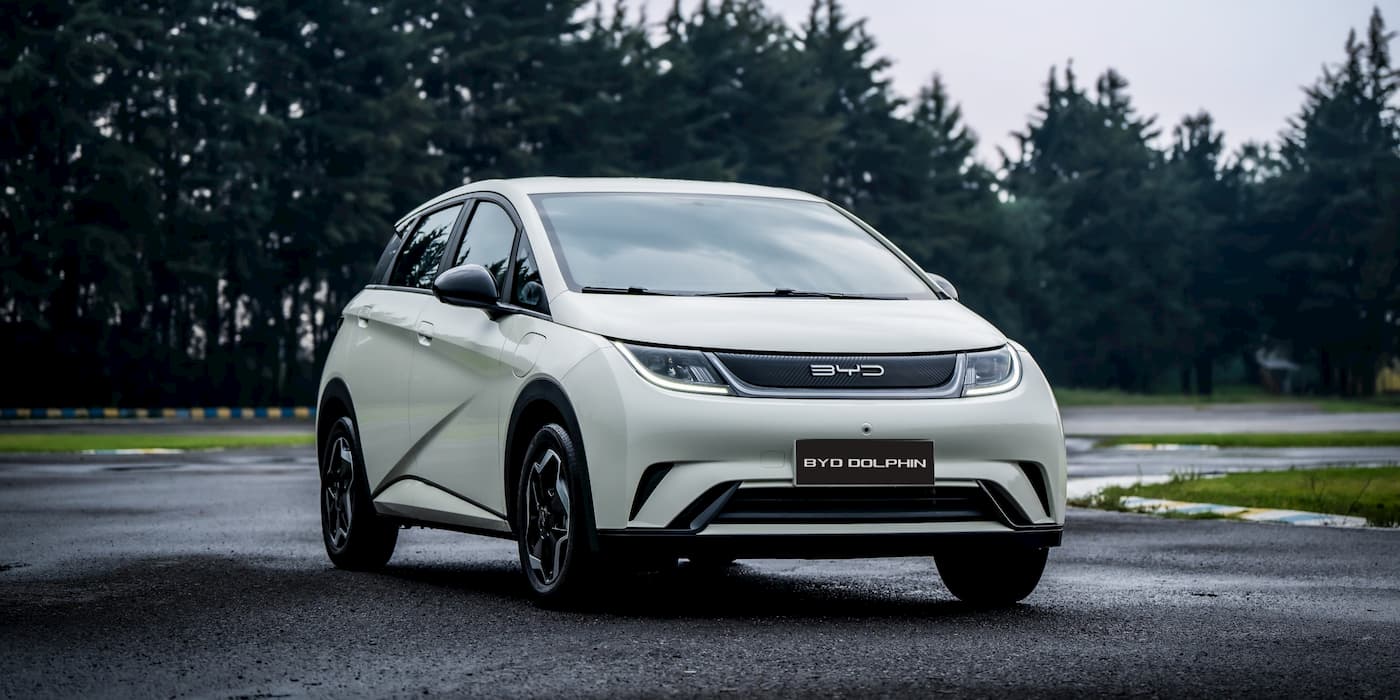
An EV battery price war is heating up. BYD is launching its next-gen Blade EV battery next year, promising to unlock more range and faster charging at a significantly lower cost.
BYD to cut EV battery costs with new Blade unit
Everyone is talking about China’s EV price war, but competition in the battery market is intensifying. BYD is the world’s second-largest EV battery maker behind CATL, but its new tech could help close the gap.
BYD’s managing director of Central Asia, Cao Shuang, confirmed during an interview a few weeks ago that BYD will launch its next-gen Blade batteries in 2025. “I think in the coming years, 2025, BYD will introduce the new generation of our remarkable blade battery,” the executive said.
Cao explained that the new unit promises to “enhance the driving distance of our vehicles.” The new Blade batteries will feature higher energy density and faster charging rates.
According to the latest, they will also get a price reduction. A source close to the matter told CarNewsChina that BYD aims for a 15% cost reduction for the new Blade EV battery. The new unit will have an energy density of up to 210 Wh/kg with 16C peak discharge.
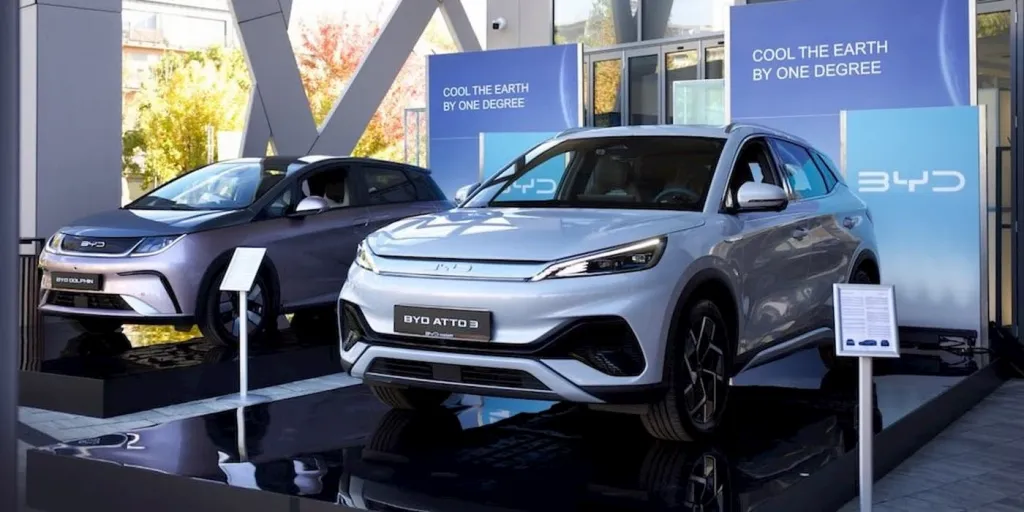
There will reportedly be two versions, one offering a lower energy density. BYD’s higher energy density (210 Wh/kg) Blade battery will support an 8C discharge rate and 3C charge rate.
With 160 Wh/kg energy density, the short blade format will offer a discharge rate of 16C and an 8C charge rate with less resistance.
The sources claimed that BYD plans to reduce the cost of the higher energy density unit by 15% compared to the current Blade battery, which offers around 150 Wh/kg energy density.
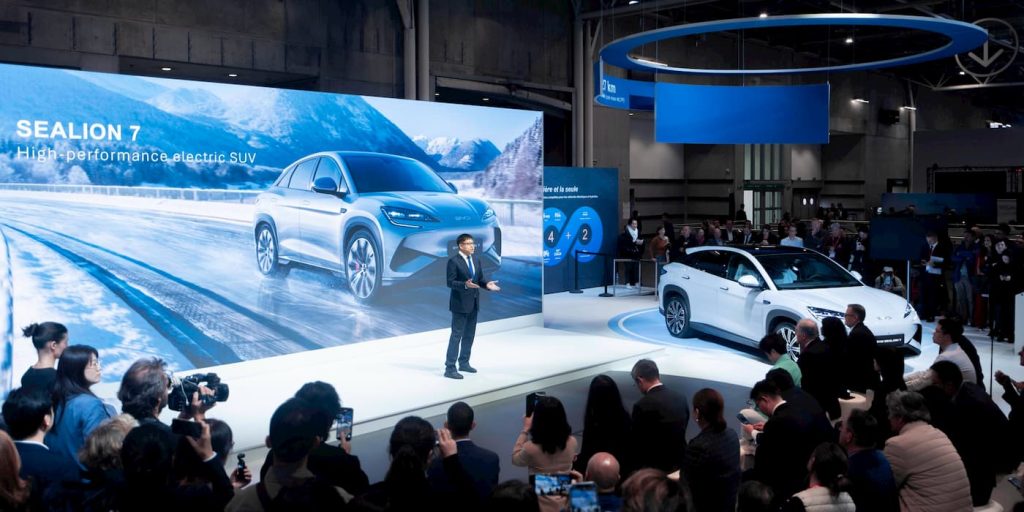
A global EV battery price war is picking up steam
“Everybody talks about the EV automaker price war, but no one talks about the battery makers price war, which is even more brutal,” the source said. The source claimed one of its customers meets monthly with suppliers to negotiate prices.
Meanwhile, rival CATL is already one step ahead. “CATL slashed the price of VDA-specs LFP batteries from 0.9 yuan/Wh two years ago to 0.35 yuan/Wh, which their sales team is currently promoting,” a source said.
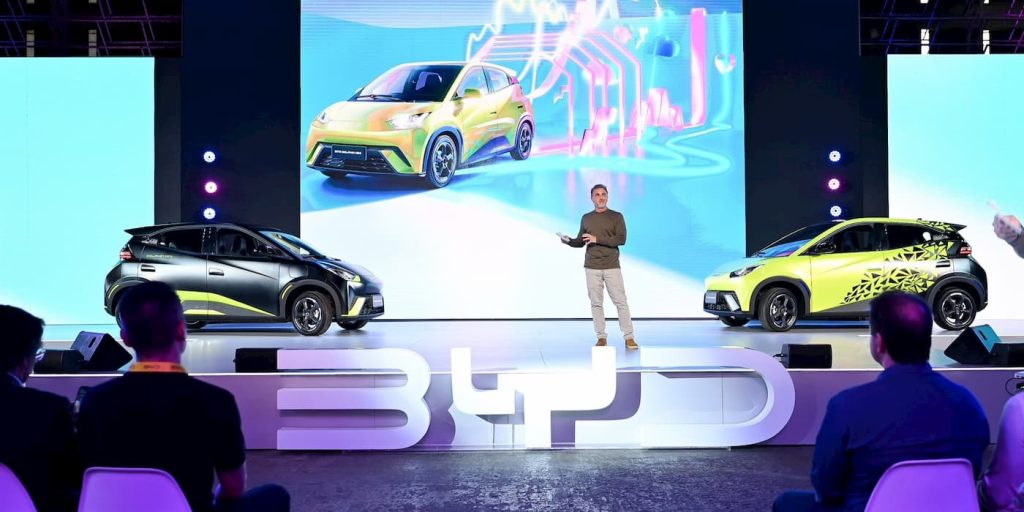
Those batteries are designed for entry-level models ($20,000) with around 2C charging. According to the source, BYD’s new Blade batteries are designed as “premium LFP batteries that compete with NMC, but for LFP prices. “
CATL has launched several new EV batteries over the past few years, while BYD introduced the Blade back in 2020. With updated LFP batteries, CATL has been able to drive prices down. BYD looks to match it with the new Blade coming in 2025.
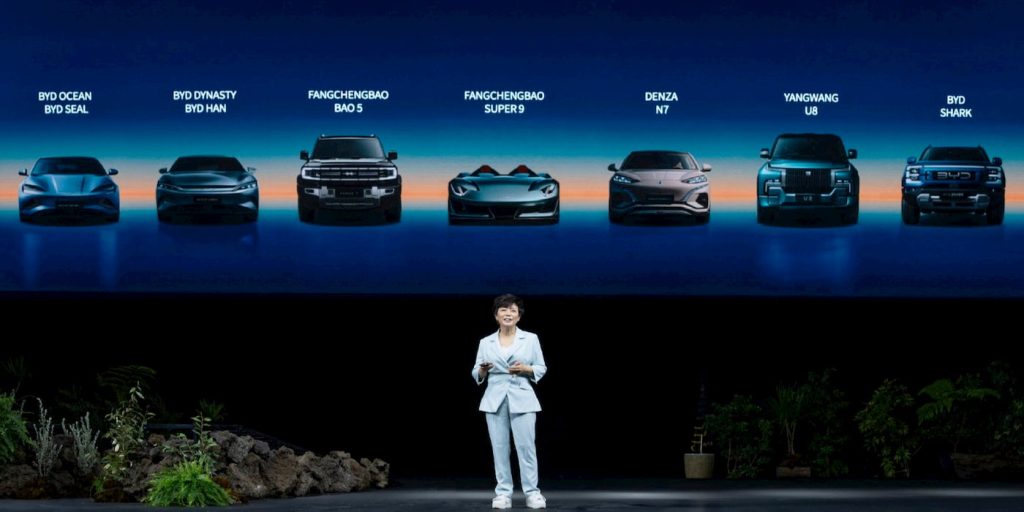
BYD and CATL are not the only ones expected to fuel the price war brewing in the EV battery space. According to Goldman Sachs Research, average global EV battery prices are expected to fall 50% by 2026 compared to 2023 levels.
Goldman forecasts the average battery price could fall to $80/kWh, down from $149 in 2023. At that level, EVs “would achieve ownership cost parity with gasoline-fueled cars in the US on an unsubsidized basis.”
BYD remained the world’s second-largest EV battery maker, with a 16.4% share of the market through September 2024. According to CnEVPost, CATL dominates the market with a 36.7% share.
After another record sales month in November, with over 500,000 new energy vehicles (NEVs) sold, BYD is on track to outsell Ford and Honda this year. BYD has now sold 3.7 million vehicles through the first 11 months of 2024 as it continues its impressive run.
FTC: We use income earning auto affiliate links. More.




Comments